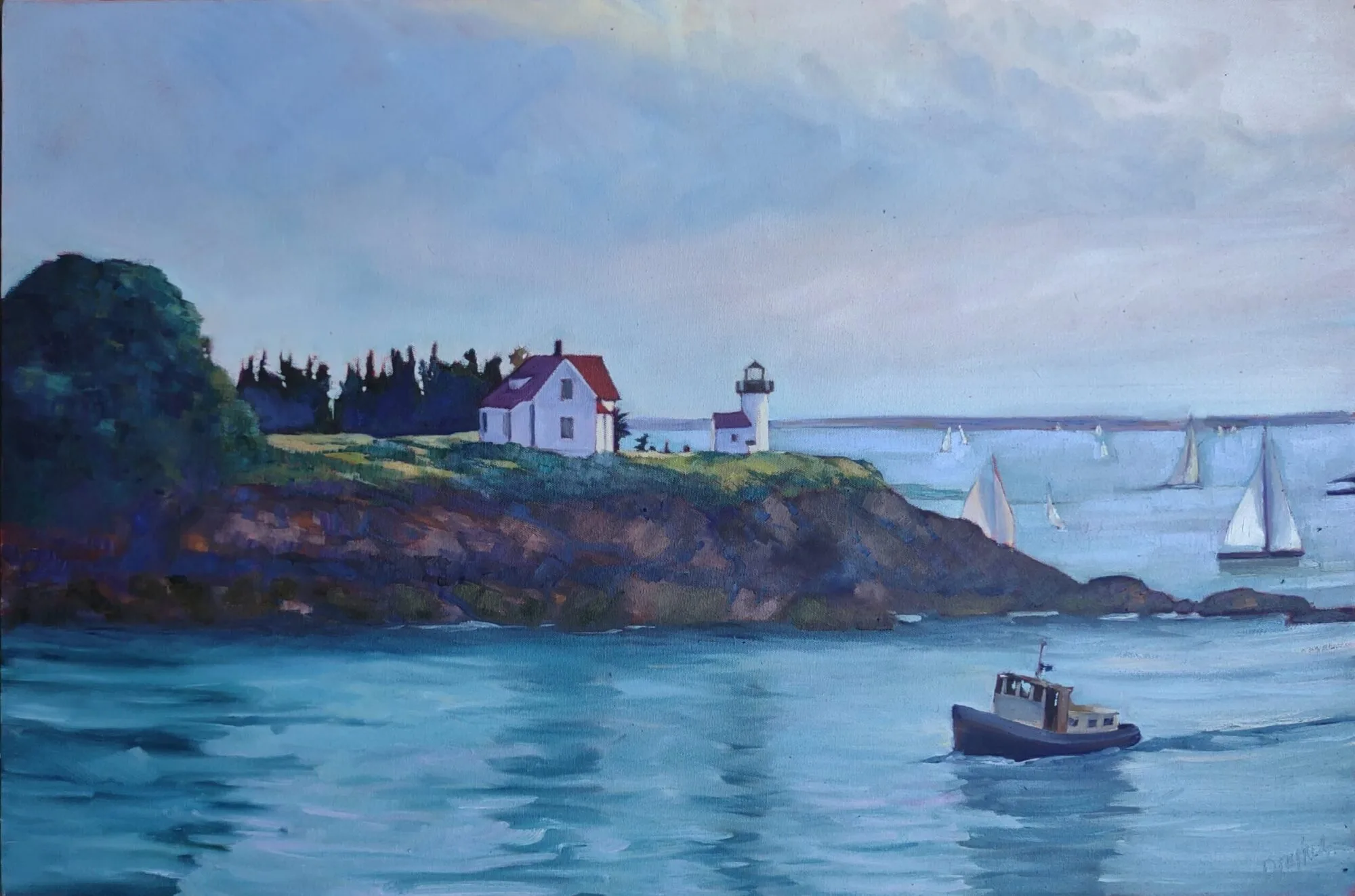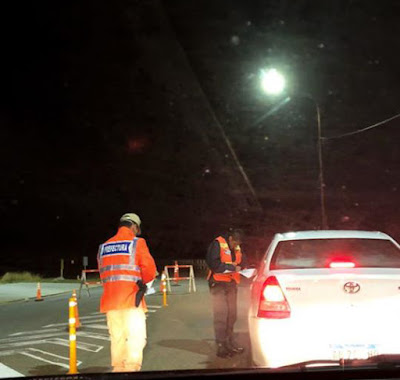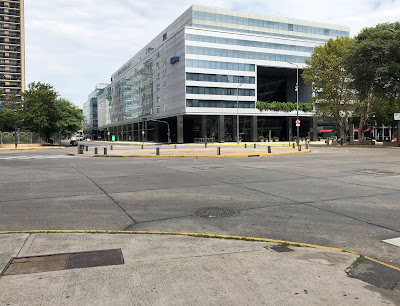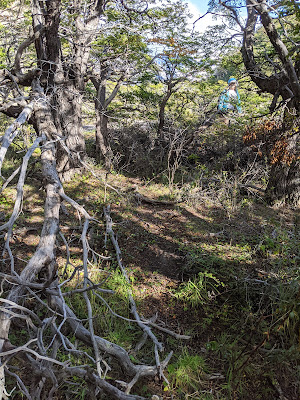We’ve made the working parent the norm in American society, and now we’re making it impossible for them to work.
 |
| Best Buds, by Carol L. Douglas. Oil on canvasboard. |
Ken DeWaard and I went down to Cape Elizabeth last weekend to paint. It’s the end of peony season here in Maine and the property has spectacular sprawling gardens. This is the last season it will be stewarded by Meghan Wakefield. The new stewards may well be wonderful, but they will create different poetic moments.
I shot a few Facebook videos, which reveal what artists talk about when engaged in painting: nothing of consequence.
I have three daughters and a son; Ken and his wife have three sons and a daughter. His oldest is a year younger than my youngest. I enjoy hearing about what his kids are doing. It reminds me how difficult those years are.
 |
| Daddy’s Little Helper, by Carol L. Douglas. Oil on linen. |
Two of my grandchildren are here this week so their parents can work. They are 4 and 5 and live on a dirt road in the western Berkshires, where they have no near neighbors. Since they have to quarantine while here, they’re starved for normal human contact. There are no casual stops at the Post Office to say hello to Steve and Ann Marie. We can’t run in to Renys or Home Depot. Very little gets done unless I’m willing to park them in front of a screen, which I’m not.
Children—even those not in quarantine—have no sense of personal hygiene or personal distancing. Recommendations are that they not go to stores or public places. That leaves them very much alone.
During the pandemic of 1918, the average American household had about 4.5 people in it. Today, that’s about 2.5 people. My two are lonely and bored, and they have each other.
 |
| Baby Monkey, by Carol L. Douglas, oil on canvasboard. |
My friend Kelly cares for her granddaughter, an only child. The girl misses her friends dreadfully. No amount of computer time can offset the loss of simple play and connection in a 7-year-old social butterfly’s life.
I’ve read various proposals to allow schools to reopen in the fall. These include lots and lots of washing, plastic sheeting to separate the children, and kids attending part time. In one district, the worst-performing distance learners will spend the most time in school. That’s understandable, but it effectively penalizes those kids who’ve worked the hardest.
The New York Post reports that the nation’s largest school district is considering alternate weeks of in-school and online learning, sending kids to school on certain days of the week, or continuing full online instruction. Returning as normal in the fall isn’t even being suggested.
More than 126,000 Americans have died with Covid-19, but only about a dozen were school-age children. Meanwhile, each year about 1,700 children die in the United States from abuse or neglect. Who are the people tasked to watch for signs of child abuse? Most commonly, their teachers. That won’t happen when kids aren’t in school.
 |
| They’re painting some wonderful things in Grandma’s studio, but the floor may never be the same. |
The 20th century model of the nuclear family—mom stays home, dad works, kids go to school—is obsolete. The US has the world’s highest rate of single-parent households—almost a quarter of all kids, compared to about 7% worldwide. Those parents lucky enough to be married are often both working to be able to afford to run a household. Very few people can afford nannies, and child-care is not designed for school-age kids. Needless to say, this social model can’t possibly stand the strain of these children being home year-round.
The ancient Levant’s deities, rivals to the God of the Hebrews, are known collectively as the Baalim. Their contemporary critics complained that they required the sacrifice of children. (The story of Abraham and Isaac is, on one level, a cautionary tale against the practice.) We have to be very careful lest we fall into the same trap.


































